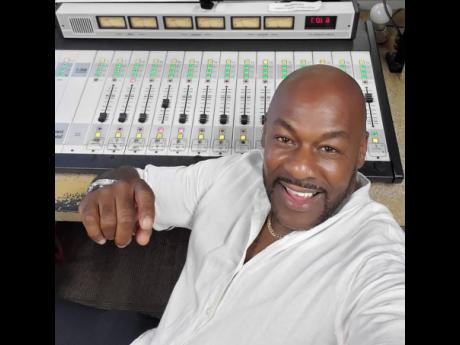Jamaican radio jocks in the diaspora support BCJ ban
NY:
Award-winning broadcaster, Kirk ‘Captain Kirk’ Nelson, of 107.9 FM in South Florida is among a growing list of Jamaican media practitioners in the diaspora who have voiced strong support for the recent ban by the Broadcasting Commission of Jamaica (BCJ) of songs that glorify lottery scamming, illicit drugs and guns.
“I support the ban 100 per cent,” Captain Kirk told The Gleaner.
“Why is there even a discussion? Not sure why it took so long for them to have pulled the plug!” the self-proclaimed Bad Boy of Radio said.
“While we can monitor what our kids see and hear on social media at home, we have no control over what is played on the radio. This is why it is important for the Broadcasting Commission to police the airwaves and rid it of defamatory songs,” the Mandeville-born disc jock explained.
“Young artistes, songwriters and producers, you all need to go back to the drawing board and create better music. You all complain about the Grammy album selection, you complain about the lack of opportunities for Jamaican music, but look at the end results. Who is benefiting most from reggae/dancehall music today? Surely not us,” he argued.
Earlier this year, director of public prosecutions, Paula Llewellyn, while delivering the keynote address at the Jamaica Bankers Association and the Jamaica Institute of Financial Service anti-fraud seminar in Kingston, voiced concern that the glorification of ‘chopping’ in popular dancehall songs was a factor fuelling the rise in lottery scamming in western Jamaica.
Jamaican broadcaster Jerome Rhodd, aka Dr J from WVKR, 91.3 FM in Poughkeepsie, NY, followed up on this line of argument.
“Our country has been plagued with crime and violence for far too long,” a concerned Dr J said, “The government has to get the youths working so they can help to build the economy because a country that does not provide resources for its young generation will fade away.”
Captain Kirk placed much of the blame for the degradation of music on local radio stations which he said has reneged on its responsibility to listeners.
“Jamaica used to be the headquarters for reggae music. We could count on stations to play good music on the airwaves. We now have what, about 39 radio stations in Jamaica, yet listeners can’t lock into one station without flipping back and forth to find good music,” he shared.
Danae Peart, the CEO of Peart Media and Business Consulting supports the commission’s ban, but feels that it may be viewed as censorship.
“Personally I am OK with it (the ban), because it’s been more than a decade now where artistes do not care to make music for airplay nor exhibit a lot of accountability for impressionable audience members. Now, from a creative lens it appears to be an over-reach bordering on censorship, which is not necessarily an effective step,” she opined.
She reasoned that the back story for the decision by the Broadcasting Commission to “institute a ban on certain music has been a consistent outcry from politicians and influential citizens regarding the content of music and whether it is more directly related to society’s ills than we have been acknowledging”.
“There is no way to prove a direct correlation between music and crime or moral decay. I, however, understand the pressure to do something about what feels like a preponderance of it. If we view dancehall as an export product of Jamaica then it adds another layer of concern about what these art forms say about Jamaica and Jamaicans to the world,” Peart added, noting that she was not convinced that the ban will bring about any meaningful change.
“I strongly doubt this will influence dancehall artistes to ‘clean up their act’. We have to remember that the genre is by nature rebellious and edgy and definitely unconcerned with pleasing traditional audiences. In fact, some of the most popular tracks right now being featured on global stages contain the same lyrics this ban addresses,” she noted.


